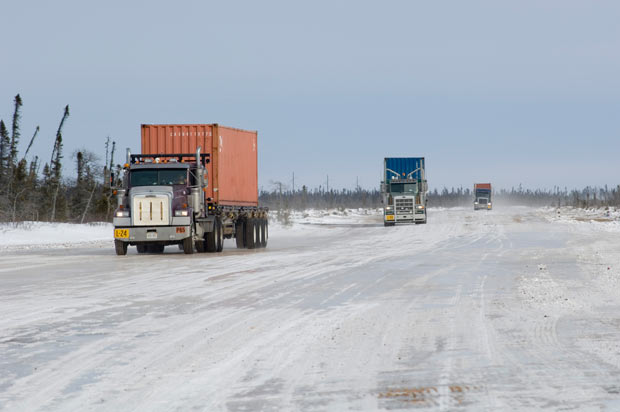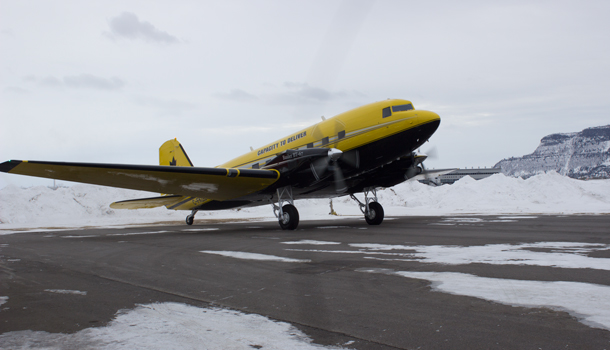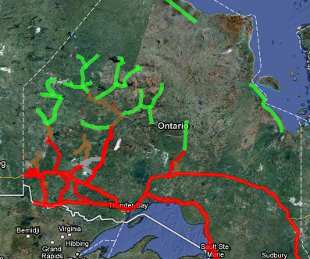
THUNDER BAY – Winter roads are a life line for communities across Ontario’s far north. Warm weather over recent days is causing serious problems for many of the winter roads.
Sandy Lake First Nation closed their winter roads on Friday over concerns that weather conditions were making travel on those roads unsafe. Across the north, most of the winter road network is closed. This places a serious burden on northern communities.
Over the past several years, many northern communities have seen the volume of goods coming into their communities on the winter roads drop. Part of that is the shorter season as climate change shortens the season. Another important result has been that the load limits on winter roads has been reduced to ensure that trucks can make it into the communities.
Many of the supplies that come in on the winter road are the needed construction supplies to build and maintain homes and build new infrastructure in the north.
Over the past several years, the volume of goods coming in on the winter roads has been far lower than the amount of goods needed. In Kasabonika First Nation the restrictions on load size means that many needed supplies don’t make it into the community.
The impact on residents is big too. Many people take the opportunities of the winter roads to get out and stock up on needed supplies.
Resource development in the north is also very dependent on the winter roads.
Mining companies have depended on the winter roads to get major supplies into their work sites. Some equipment is just too large to fly in to communities.
The alternative is air transportation
Air transportation into the north is year round, although in the past there have been limits placed on just what can come in based on aircraft sizes.
One of the keys to solving this growing issue with winter roads is larger aircraft.

Larger aircraft allow larger sized cargo to make it into the communities.







